Education and Skills Committee
Education and Skills Committee Session 5 Legacy Paper
Membership Changes
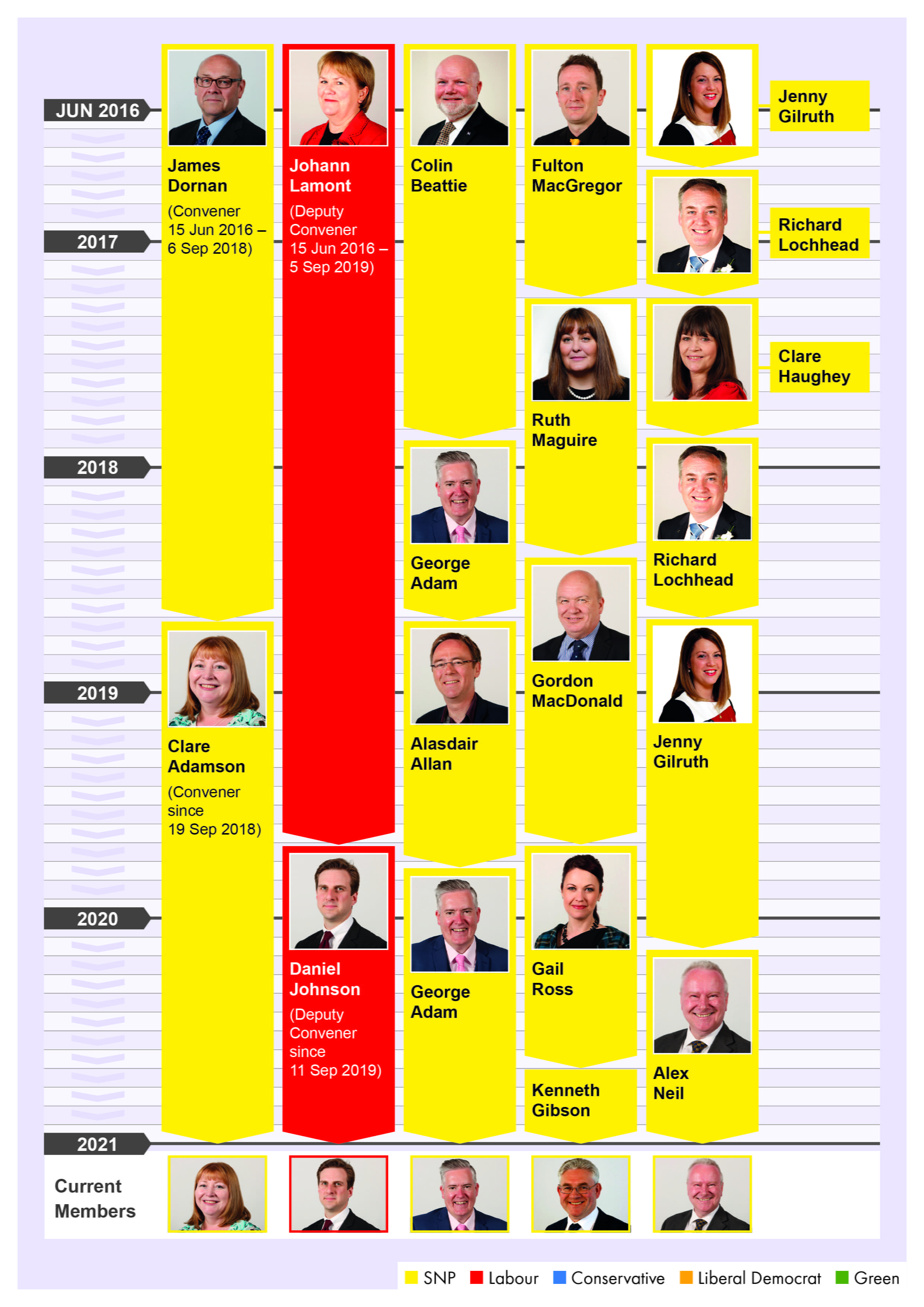
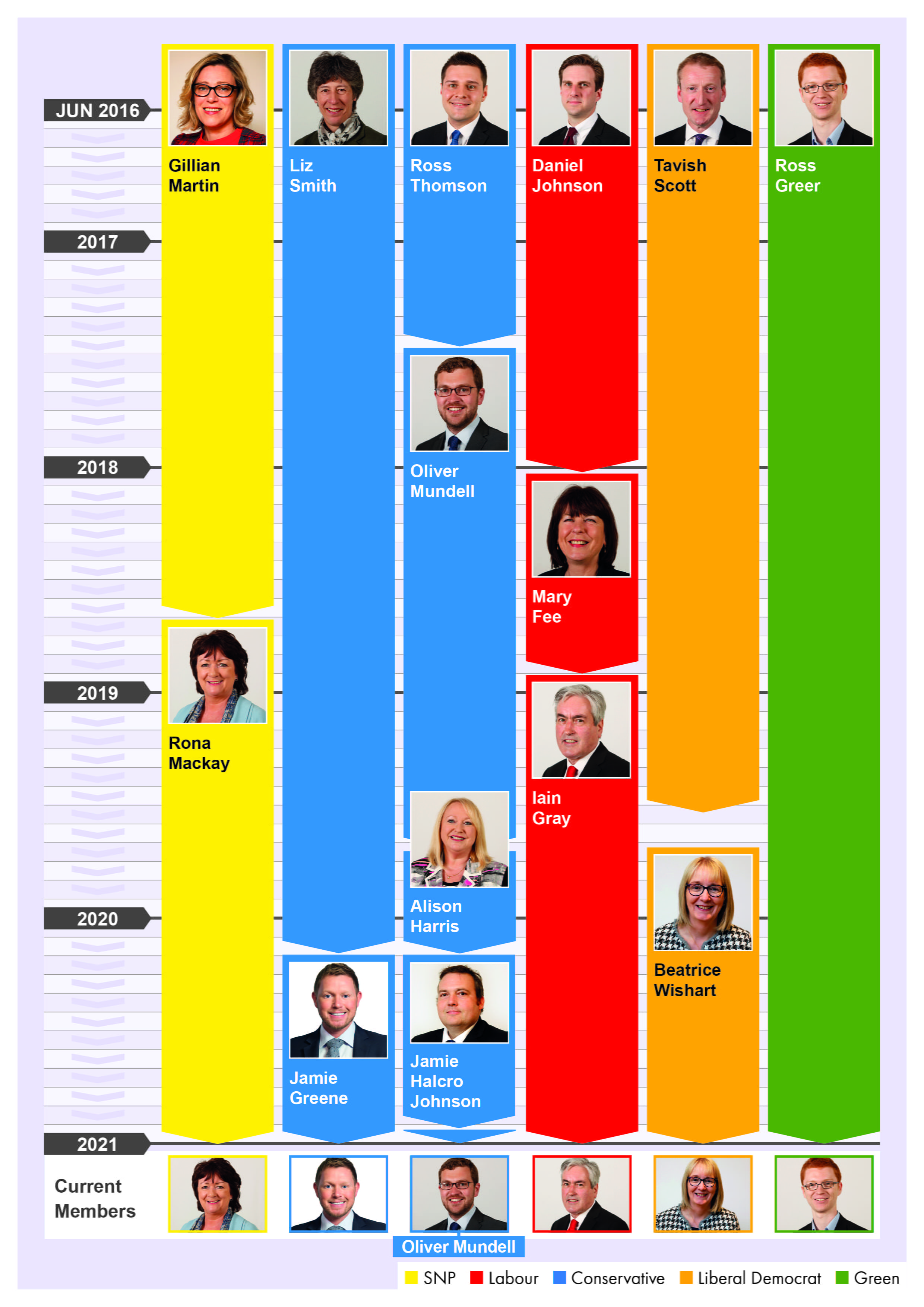
Key Achievements
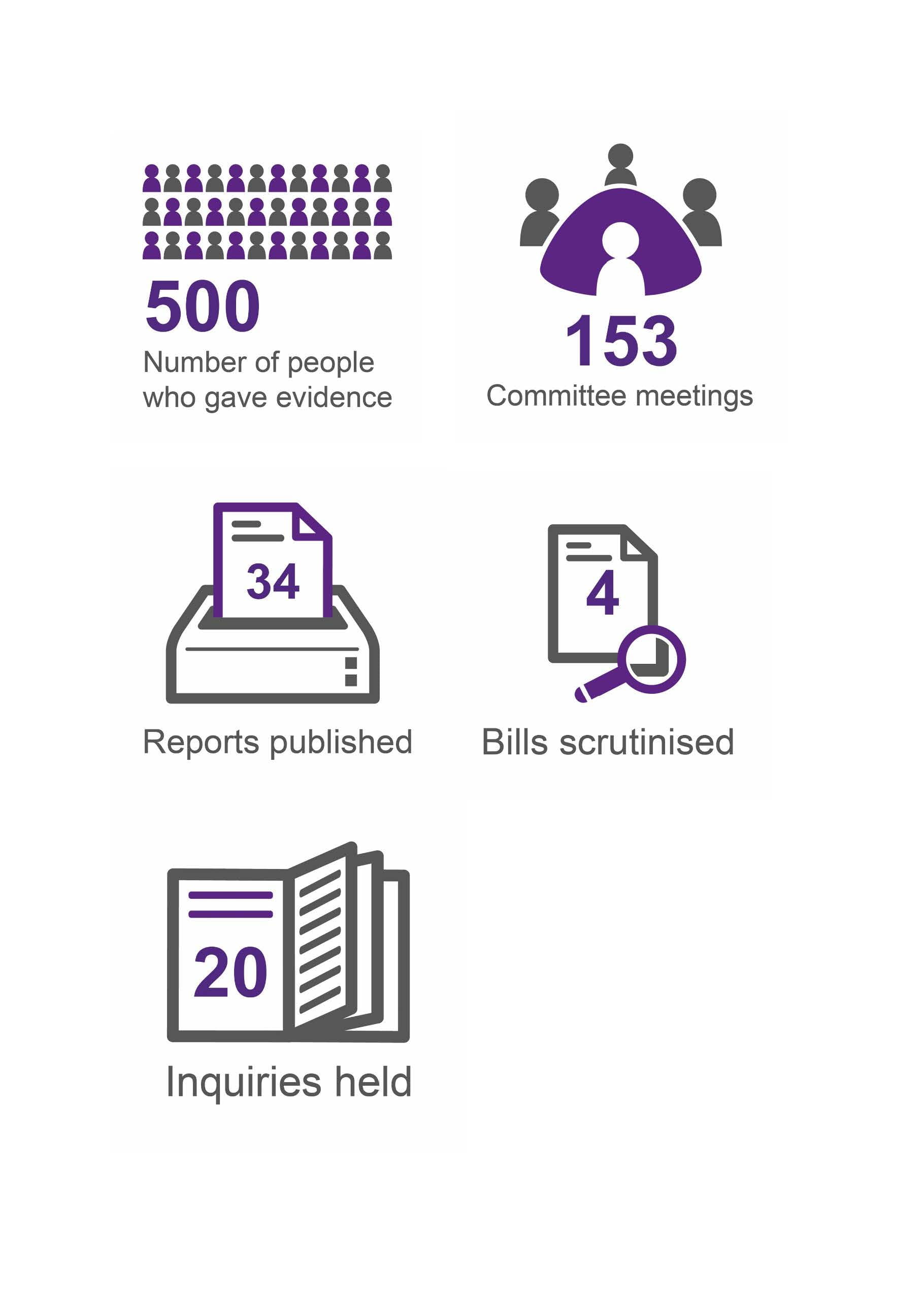 Scottish Parliament
Scottish Parliament
Introduction
As we come to the end of the current Parliamentary session, our Legacy Report allows us to reflect both on the wide range of work that we've undertaken over the last five years and highlight the areas in which we believe our successor committee can have the greatest impact.
In this report, we will look back at some of our key achievements this session, including where we have listened to children, young people and adults, where we have held local authorities, the Scottish Government and public bodies to account and where we have helped change law, policy and practice for the better.
As will always be the case at the end of a Parliamentary session, many of the issues we have been working on won't be resolved when this Committee comes to an end. Where there are ongoing reviews or reports awaiting publication, and where we think it is important our successor committee scrutinises these, we have made this clear.
There have been a number of recurring issues which have repeatedly come to our attention in Session 5, including:
supporting looked after children and those with additional support needs;
scrutinising institutions and public bodies within Scottish education.
We anticipate these issues, covered later in this report, being of particular interest to our successors.
The way that we work has changed significantly since 2016. This change has been accelerated in the last year as necessity has meant that digital meetings and digital engagement have become the norm. Whilst there are some challenges associated with working and engaging digitally, we recognise too that it has helped us reach new stakeholders and allowed us to bring together groups who would be unable to meet in person.
The changes brought about by Covid-19 over the last year have impacted particularly heavily on those under our remit. From early years and childcare provision, to school pupils, to modern apprentices and students in further and higher education, we have sought to be responsive and agile, critically analysing the impact of emergency powers and pushing for change where there was disadvantage.
This has had an impact, however, on our ability to carry proactive work, and this report sets out a number of areas which the committee identified as being of concern this session and in which we think our successor committee could meaningfully inquire in future.
In drafting this report, we acknowledge that the remit of our successor committee may be different in the next Parliamentary session. As such, this report has been written to inform whichever successor committee (or committees) follow us.
We have chosen to divide this report into three parts. The first part sets out how we have conducted our business in Session 5, the second sets out the major issues we have considered and the third outlines our learning and hopes for the future.
How we've worked
Our Remit
This session the Committee's remit has covered:
Early years and childcare;
School education and support for learning;
Colleges and universities;
Apprenticeships and other routes to employment;
Child protection and well-being;
Care-experienced children, foster care and kinship care.
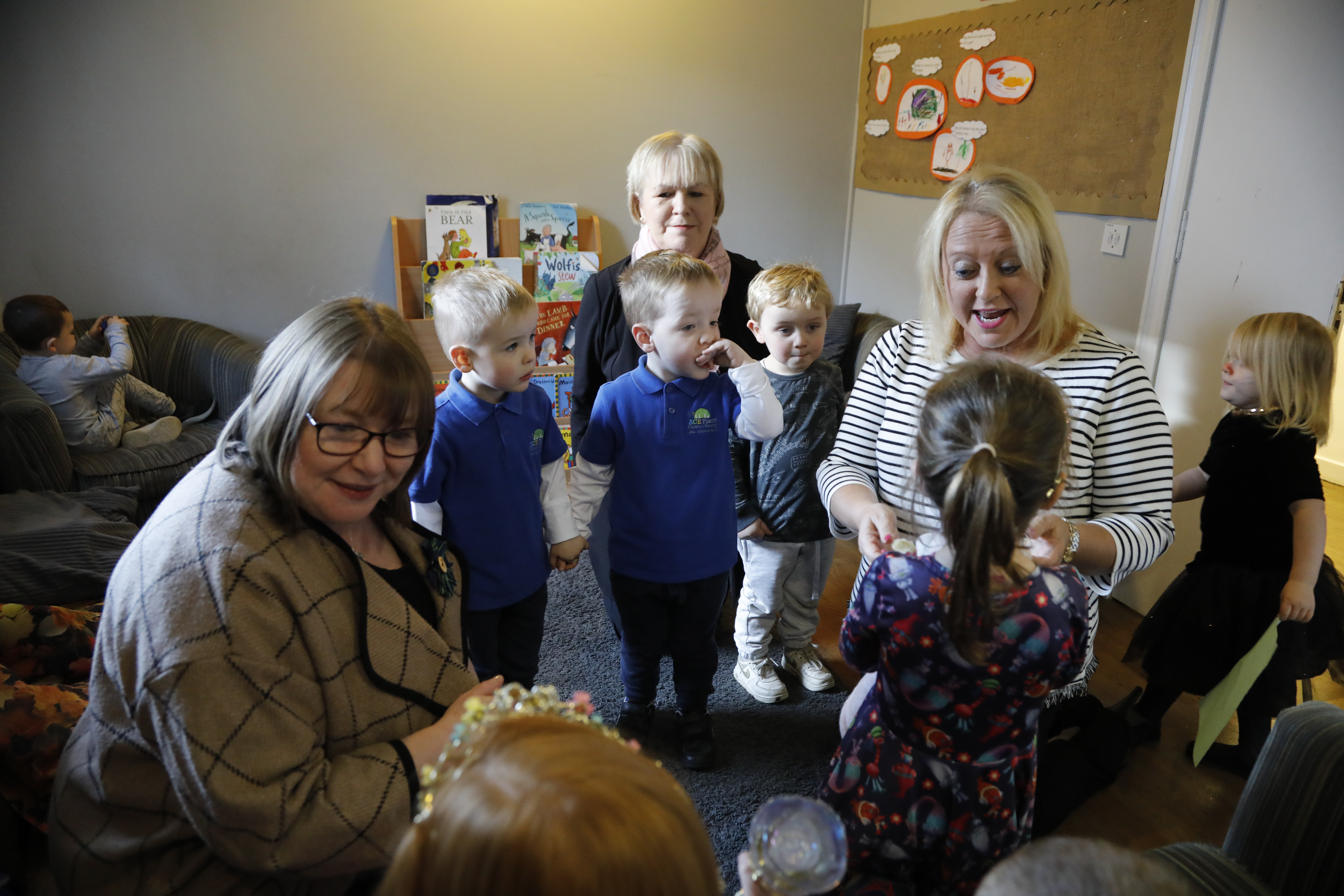
Engagement
Engagement has been a crucial element of our work over the last five years. Hearing from those with direct, lived experience is vital to form a picture of how a law, policy or practice is affecting different groups. For us, that has meant engaging with young people, parents, teachers, childcare providers and a wide range of other stakeholders throughout the session.
As part of our inquiry into instrumental music tuition, for example, many young people told us that music charges meant they could no longer learn an instrument, something which was further evidenced by a significant drop in music tuition uptake following the introduction of charges. We have consistently called on local authorities to abolish these charges and to restore access to free music tuition for all. We would hope this is an issue our successor committee could continue to pursue.
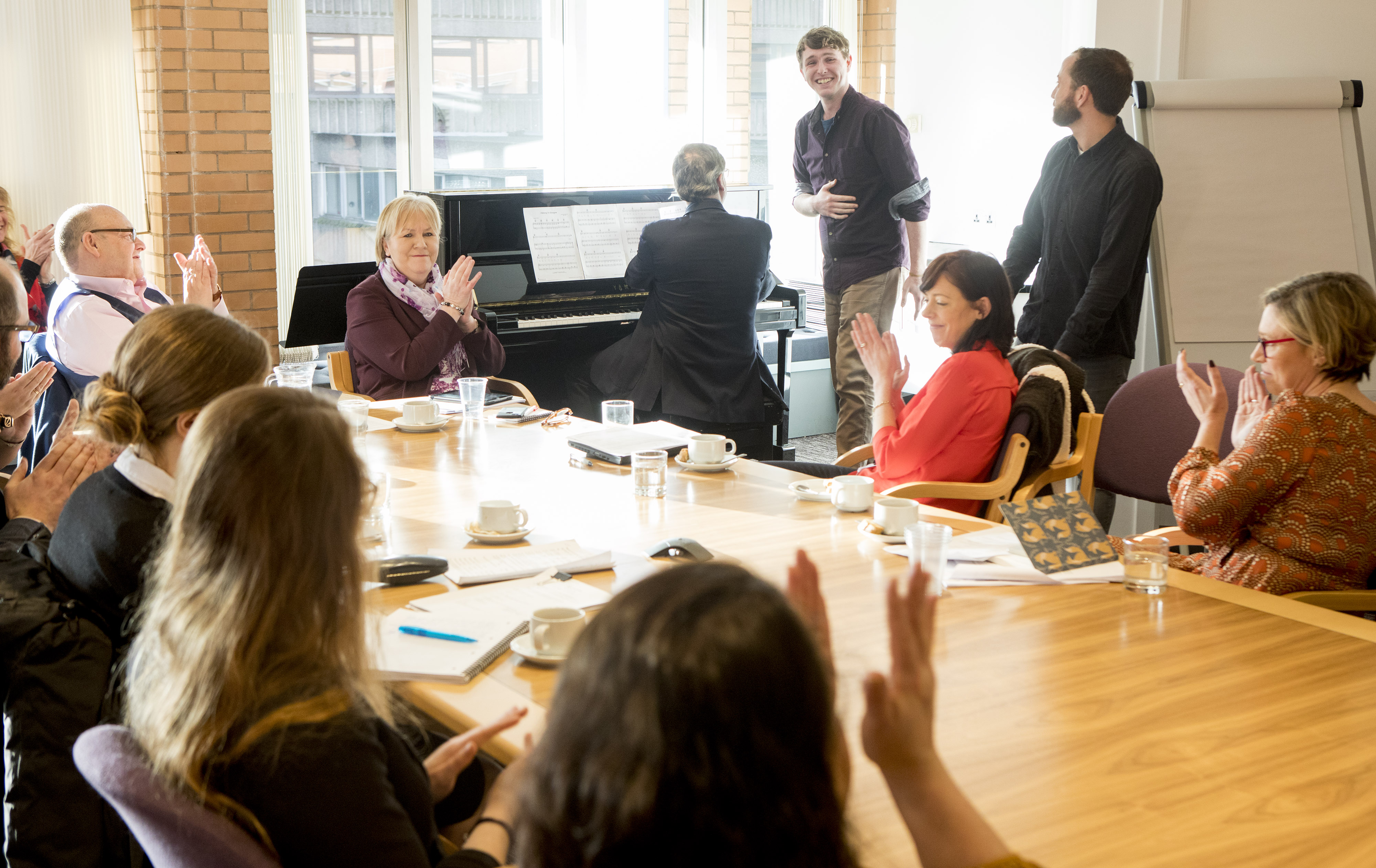
Care-experienced young people also shaped our thinking as we considered the Disclosure (Scotland) Bill (now 2020 Act). We heard that young people in residential care were statistically much more likely to gain a criminal record than their peers. This was due to a range of factors, including the way in which some trauma-related behaviours were categorised as offensive or threatening and how incidents were dealt with in residential care settings. It was important that we understood the difference the Bill would make to these young people's future life chances. Hearing directly from them meant that we were able to make recommendations in our Stage 1 report which reflected their needs. This ultimately resulted in better legislation.
Over the last five years, we have used a wide range of engagement tools, such as focus groups, fact finding visits and online surveys to inform our work. In 2018, a delegation from the Committee travelled to Finland and Sweden to learn more about recent education reforms there. We have also been open to implementing members' knowledge of local groups in their own regions and constituencies to expand our engagement network, such as when we visited Coatbridge High School to observe North Lanarkshire Council's provision of instrumental music tuition as part of our inquiry into instrumental music tuition in schools.
Our use of focus groups has been especially valuable for informing our scrutiny. We have often scheduled these for the evening before or morning of committee meetings and have been able to carry the messages we hear from those affected by particular issues, such as parents of children with additional support needs, directly to Ministers or other decision-makers in evidence. As part of our subject choices inquiry, we held focus groups with parents and teachers in Dunfermline which helped to shape members' questions and the direction of the inquiry.
We also carried out a number of visits where we met stakeholders face to face. As part of our work on youth people's pathways, for example, we visited various venues in Shetland, including a primary school, a high school, the local college and local businesses. We also visited Peterhead and Glasgow as part of our inquiry into poverty and attainment, and attended the Scottish Learning Festival and the Primary Science Teaching Trust Conference as part of our work on STEM issues. These were all great opportunities to speak with practitioners to inform our work.
Throughout Session 5, we have also sought to engage constructively with the Scottish Youth Parliament, holding regular Convener-to-Convener meetings as well as visiting the plenary session of the Scottish Youth Parliament and taking evidence from MSYPs through focus groups and oral evidence.
In March 2021, we took evidence from Young Advisers to the Children and Young People's Commissioner Scotland (as well as the Commissioner himself) on the impact of Covid-19 on young people. We found this session to be incredibly insightful and valuable, and would strongly recommend that our successors hold more regular sessions with these Young Advisers to place the views and experience of young people front and centre, particularly with the incorporation of the UN Convention on the Rights of the Child into Scots Law.
As a result of Covid-19, our engagement opportunities over the last year have generally been restricted to online events. However, the necessity of engaging in this way has brought wider benefits, including making it easier to hear testimony from a wide range of stakeholders, providing us with a more diverse and Scotland-wide perspective. For example, working digitally meant we were able to bring together College and University Principals from across Scotland to talk about the impact of Covid-19 on Further and Higher Education, something that is unlikely to have been possible in person. We also used digital engagement to help us speak to adult survivors of childhood abuse in care, gauging their views on the Redress for Survivors (Historical Child Abuse in Care) (Scotland) Bill. We are conscious, however, that there is scope to do more.
In reflecting on our engagement work to date, we want to highlight the importance of providing opportunities for witnesses to speak freely with Committee Members. This includes ensuring pupils have spaces where they can share their views without teaching staff being present (whilst ensuring appropriate child protection procedures are in place). As a Committee we found this particularly helpful in allowing young people to speak candidly.
We also wish to note concerns raised by some teaching staff we engaged with that it was difficult for them to speak openly about their views. We would encourage our successor committee to think carefully about how to ensure all witnesses are able to contribute fully to our work, without fear of it negatively impacting on their employment.
The use of social media allowed the Committee to reach out directly to social networks, most notably teachers and educational organisations who regularly share relevant Committee business directly to educators and parents/guardians.
For our personal and social education inquiry, we invited members of the public to tag the Committee in tweets to share their views on PSE as part of our evidence gathering process. These Facebook and Twitter submissions featured in and helped inform the findings in our final report.
As business shifted increasingly virtual, the account increased its use of clipped moments from Committee business, highlighting contributions and allowing evidence to be shared directly with followers.
Over the session, the Committee's Twitter account more than tripled its follower numbers - up from approximately 1,500 followers in May 2016 to over 5,300 in March 2021. The Committee also featured on Facebook Live, with viewership during the pandemic notable with between 9,000 to 17,000 views per meeting over the past year and an opportunity to receive real time feedback from parents, pupils and teachers.
We would hope our successor Committee continues working in partnership with organisations who have established trusted relationships and methods of working with people the committee want to hear from. Over the last 5 years, we have valued the input of the Scottish Parliament's engagement specialists who have both co-produced and delivered engagement sessions on behalf of the committee. We have also recognised the value in communicating and producing information in a number of different formats and media, making it clear and accessible; and integrating engagement planning and outcomes as standard into our work.
Our successor committee may also wish to think about how to engage meaningfully with younger children and children and young people with additional support needs, including learning disabilities. These are groups that the Committee has previously heard from via third parties (e.g. parents, support organisations) rather than directly. We are conscious that tailored approaches are likely to be required for these groups to best meet their needs.
We would also encourage our successor committee to work closely with the Scottish Parliament's PACT team to build links with groups and individuals from across Scotland, relevant to the committee's remit. This would provide benefits in terms of widening access to the Scottish Parliament, but also ensuring a diversity of evidence.
We believe that, regardless of the public health situation, increased use of digital engagement should be incorporated into engagement activity in Session 6.
Financial scrutiny
As a subject committee, the Education and Skills Committee has a role in the budget process. We have, where possible, explored budgetary issues as part of our inquiries, such as looking at further and higher education finances and capital projects in both the early learning and childcare and schools sectors and exploring how Pupil Equity Funding (PEF) has been used to narrow the attainment gap. We recognise there are some additional challenges in scrutinising school education budgets, given these are managed at a local authority level.
A new budget process was introduced in Session 5 following the report of the Budget Process Review Group in June 2017. This new process emphasised the need for a full-year approach to budget scrutiny that was output/outcome focused. While this relatively new process is still bedding in, it is unarguable that the timescales for the 2021/22 budget in particular did not lend themselves well to subject committee scrutiny. However, in session 6, we would hope our successor committee would be able to ensure budget scrutiny was fully integrated into its work plan.
The Finance and Constitution Committee established an expert panel (the Legacy Expert Panel) of fiscal, economic and constitutional experts to identify the main scrutiny challenges over the next session of Parliament. Its report, published in February 2021, recommended that "a priority for the successor [Finance and Constitution] Committee should be to consult with the subject committees on developing a more co-ordinated approach to budget scrutiny within the context of the recommendations of the Budget Process Review Group (BPRG)."
Our successor committee may wish to consider the final report of the Legacy Expert Panel, consult with colleagues on the Finance Committee and identify opportunities for ongoing budget scrutiny early in Session 6.
Petitions
Throughout Session 5, we have considered a number of public petitions referred to us by the Public Petitions Committee. Public Petitions ensure that members of the public can raise issues directly with the Parliament, and legislation we have considered in this Session on redress and transitions for disabled children and young people has been informed by previous petition. We therefore recognise the important role petitions play in our work.
The Public Petitions Committee wrote to the Education and Skills Committee in December 2020 to draw its attention to a number of closed petitions.
Our successor committee may wish to consider two such petitions in particular:
PE1813 which called on the Scottish Parliament to urge the Scottish Government to reform the national curriculum to include Afro-Scottish history, including artefacts of African diaspora, cultural and economic contributions, the role of the British Empire and the benefits to Scotland from colonies of the Caribbean and Africa and
PE1814 which called on the Scottish Parliament to urge the Scottish Government to embed Black, Asian and minority ethnic (BAME) history into the school curriculum.
In closing these petitions, the Public Petitions Committee noted that:
The Scottish Government has committed to find ways of promoting diversity and better teaching and learning about Black, Asian and ethnic minority history and the importance of tackling racism in society today in schools; and
This is a large, long term project that the [Public Petitions] Committee is confident will be scrutinised by other areas of the Parliament.
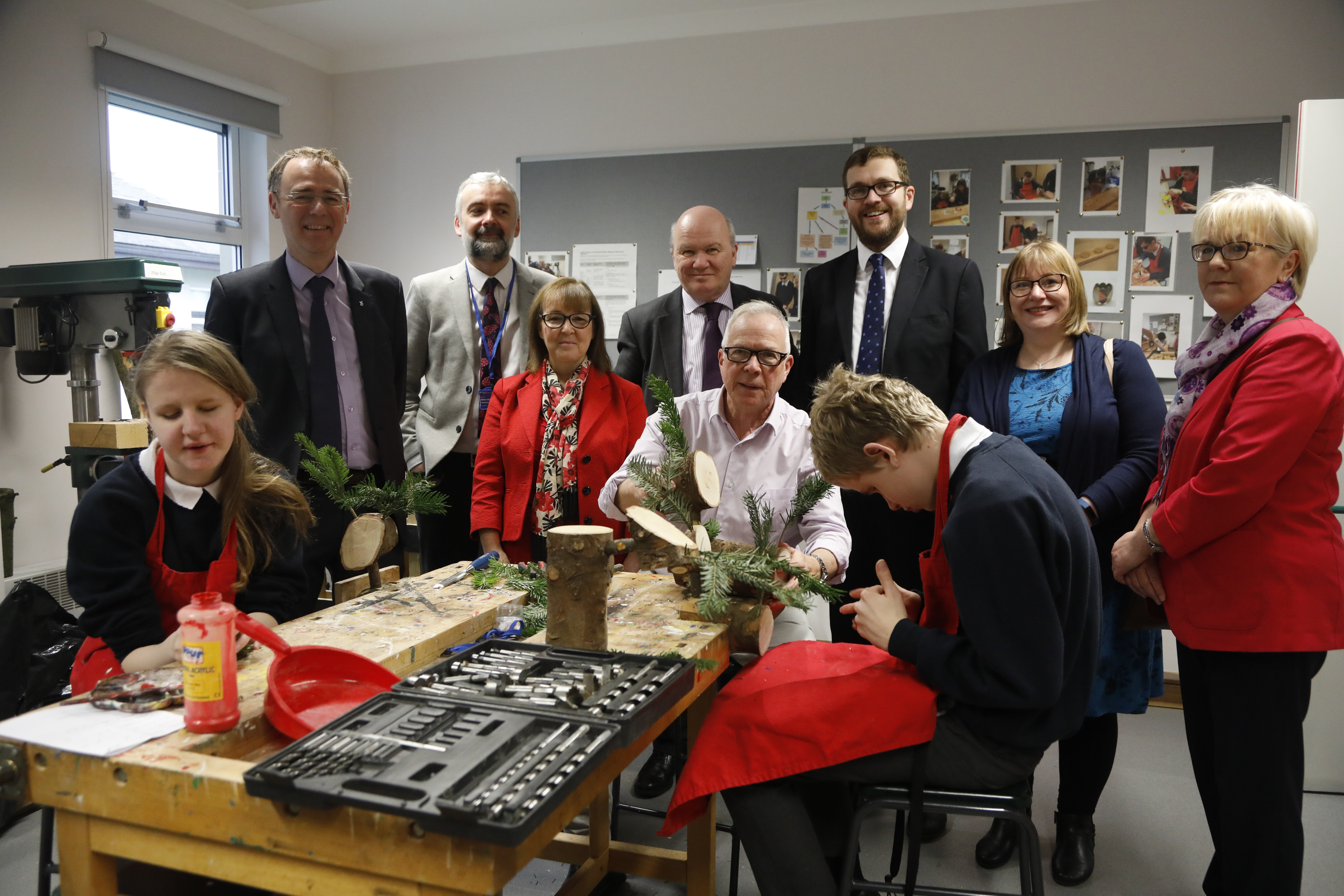
By the end of Session 5, four petitions referred to this Committee remained open:
• PE1548 National Guidance on Restraint and Seclusion in Schools:
Calling on the Scottish Parliament to urge the Scottish Government to 1. Introduce National Guidance on the use of restraint and seclusion in all schools; this guidance should support the principles of:
Last resort - where it is deemed necessary, restraint should be the minimum required to deal with the agreed risk, for the minimum amount of time
Appropriate supervision of the child at all times, including during “time out” or seclusion.
Reducing the use of solitary exclusion and limiting the time it is used for (e.g. maximum time limits)
No use of restraints that are cruel, humiliating, painful and unnecessary or not in line with trained techniques.
Accountability of teaching and support staff for their actions; this should include recording every incident leading to the use of seclusion or restraint and monitoring of this by the local authority.
Regular training for staff in how to avoid the use of restraint
Where restraint is unavoidable training in appropriate restraint techniques by British Institute of Learning Disability accredited providers and no use of restraint by untrained staff.
2. Appoint a specific agency (either Education Scotland or possibly the Care Inspectorate) to monitor the support and care given in non-educational areas including the evaluation of the use of restraint and seclusion of children with special needs in local authority, voluntary sector or private special schools.
• PE01668 Improving literacy standards in schools through research-informed reading instruction: Calling on the Scottish Parliament to urge the Scottish Government to i) provide national guidance, support, and professional learning for teachers in research-informed reading instruction, specifically systematic synthetic phonics; ii) ensure teacher training institutions train new teachers in research-informed reading instruction, specifically systematic synthetic phonics.
• PE01692 Inquiry into the human rights impact of GIRFEC policy and data processing: Calling on the Scottish Parliament to urge the Scottish Government to initiate an independent public inquiry into the impact on human rights of the routine gathering and sharing of citizens’ personal information on which its Getting It Right For Every Child (GIRFEC) policy relies.
• PE1747 Adequate funding to support children with additional support needs in all Scottish Schools: Calling on the Scottish Parliament to urge the Scottish Government to provide adequate funding to support children with additional support needs in all Scottish Schools (Primary, Secondary and Special).
Petitions PE1548 and PE01692 remain open as the Deputy First Minister has indicated that guidance on both matters will be finalised later in 2021. Petition PE01668 would have been addressed as part of our inquiry into initial teacher education, but this inquiry was paused as a result of the pandemic. PE1747 was referred to the Committee very recently, and although we have undertaken some work on additional support needs since referral, we have not had the time to consider the petition fully.
We believe it would be appropriate for our successor Committee to consider these open petitions afresh at the start of Session 6, particularly given the impact of Covid-19 on the Committee's work.
Our successor committee may also wish to follow up on the actions the Scottish Government undertook to take in relation these petitions, including what progress, if any, has been made in relation to embedding Black History into the curriculum in Scottish schools. In doing so, the successor committee may wish to consult with both the petitioners and the Coalition for Racial Equality and Rights.
Skills
In Session 5, we held a number of inquiries into skills-related issues. These included an inquiry into the role of STEM in early years education and another into developing young people's pathways through the Developing the Young Workforce Programme.
Our report on STEM in early years education recommended more of a focus on long-term interventions in school and early learning settings when the Scottish Government is measuring progress towards the STEM strategy's aims. As we highlight more generally in the education workforce section of this report, we also found that access to and time for CPD and training was key to increasing teacher and practitioner confidence. This report was debated in the Chamber on 4 March 2020.
Our report on the Developing the Young Workforce Programme found that support remained high for the programme, with much progress being made in implementing its aims, but also highlighted at what was then the halfway stage that momentum would have to be increased to ensure the programme was delivered by 2021. The Scottish Government responded positively to this report and its recommendations in January 2019.
Our broad remit, however, has meant that we have been unable to cover as many skills-related issues as we would have liked. For example, had we the opportunity, we would have undertaken more work on the Cumberford-Little Report, published in 2020 and commissioned by the Scottish Government to review the economic impact of colleges and explore what more colleges can do to contribute to business growth.
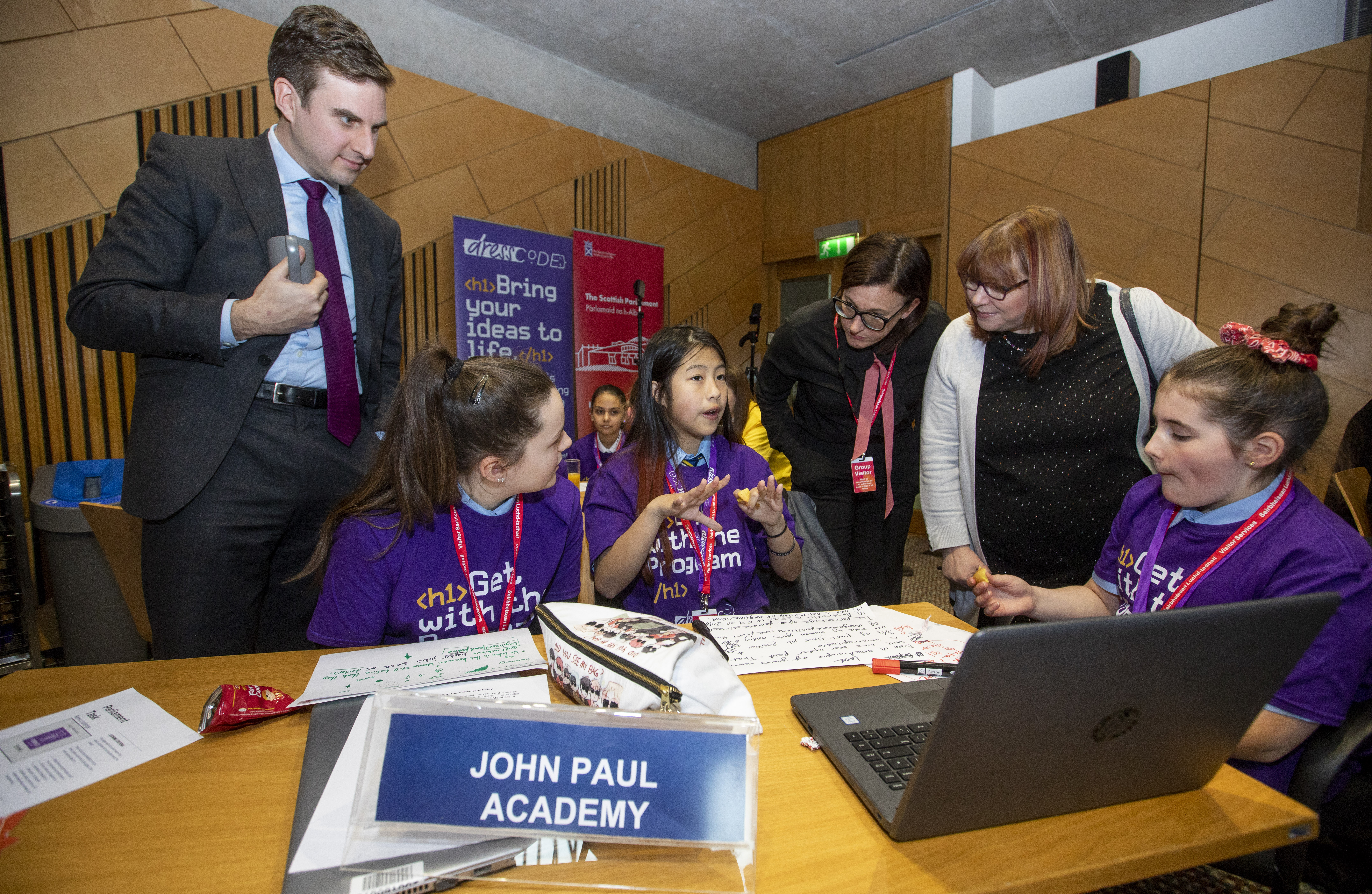
As such, we believe there should be careful consideration as to whether our successor committee's remit should include skills. Currently, skills-related matters are shared between our Committee and the Economy, Energy and Fair Work Committee. We believe, however, that skills-related matters may be better served by one committee, taking an holistic view, rather than being split across the remits of more than one committee. Alternatively, our successors may wish to explore other options for promoting skills, such as establishing a sub-committee focused on skills, actively engaging with other committees responsible for skills on joint inquiries, or appointing rapporteurs.
Regardless of which Committee has responsibility for skills, it is vital that it is at the top of the agenda in Session 6. We are conscious that Covid-19 is likely to impact significantly on skills in the coming months, not least due to rising unemployment and the requirement for many workers to re-skill and move into other industries. Therefore, we believe that there is a significant body of work to be carried out in this area.
Our successor Committee should consider ways in which it can undertake more work in relation to skills, including joint work with other Committees.
If skills-related matters remain part of the remit of our successor committee, our successor Committee may wish to consider carrying out work examining the impact of Covid-19 on the skills sector.
Covid-19
There is little doubt that Covid-19 will continue to impact on our successor committee's remit well into the next Parliamentary session.
Much of the last 12 months has been devoted to responding to an ever-changing education and skills landscape. Exam cancellations, home-schooling, appeals processes and students returning to and then leaving colleges and universities have all featured prominently in our work. The longer-term impact of these changes is as yet unquantified, but is likely to be significant.
For example, we heard from a wide range of stakeholders that home-schooling would widen the attainment gap for some children and young people, including those living in poverty, those without access to digital devices and those with additional support needs.
Young people told the Committee that decisions affecting them had been poorly communicated by public bodies and that young people themselves had often not been consulted. Young people were concerned that their rights had not been fully respected. Covid-19 restrictions had also damaged their mental health and well-being and changed their education experience significantly.
As the pandemic has progressed, we have regularly taken evidence from Scottish Ministers, including the Deputy First Minister and Cabinet Secretary for Education and Skills, the Minister for Further Education, Higher Education and Science and the Minister for Children and Young People. These sessions have covered school-related issues, the impact of Covid-19 on students and the roll-out of 1140 hours of early learning and childcare. We have consistently pushed for the very best outcomes for young children, school pupils and students.
We have also listened closely to young people, including engaging with members of the Scottish Youth Parliament and Young Advisers from the Commissioner for Children and Young People Scotland. We have advocated on their behalf, holding the Scottish Government and key public bodies to account and hearing evidence from bodies such as Education Scotland, the Scottish Qualifications Authority (SQA), COSLA, the Scottish Funding Council amongst many others.
We are conscious that the full impact of Covid-19 on our remit may not become apparent for some time. As such, we would encourage our successor committee to keep a watching brief on some of the concerns raised in relation to Covid-19, particularly in relation to its potential to widen the attainment gap.
Our successor committee may also wish to examine the impact of Covid-19 on the attainment of young people and their pathways into education and work post-16, including specifically whether the 2020 and 2021 exam cohorts have experienced any disadvantage as a result of estimated grades.
We would also encourage our successor committee to analyse the findings of any reviews and reports delayed by Covid-19. Specific examples of these feature later in this report.
Delayed Work
The last 12 months of this session has necessarily been reactive, dealing with emerging issues and scrutinising emergency measures. Whilst this has been entirely appropriate under the circumstances, it has come at a cost to the Committee's planned proactive work, including a number of inquiries which we were keen to undertake.
These included an inquiry into initial teacher education, an inquiry into school counsellors (which would have included fact finding work in Wales), further work on the delivery of STEM education in schools, and planned evidence sessions on the impact of Brexit on further and higher education.
Whilst we have been unable to undertake these inquiries due to our Covid-19 related work, we still believe there is merit in exploring the issues they are likely to raise. We would therefore encourage our successor committee to explore these topics early in Session 6.
What we've done
Legislative Work
This session we have scrutinised the following Bills:
The Disclosure (Scotland) Bill (now 2020 Act).
The Redress for Survivors (Historical Child Abuse in Care) (Scotland) Bill
We also undertook work on the Children and Young People (Information Sharing) (Scotland) Bill, which was withdrawn by the Scottish Government in September 2019 , and the Disabled Children and Young People (Transitions to Adulthood) (Scotland) Bill, which was lodged in September 2020 and is discussed in more detail in the next section of this report.
Further information about our work on the Disclosure (Scotland) Bill can be found here.
Further information about work on the Redress for Survivors (Historical Child Abuse in Care) (Scotland) Bill can be found here.
Disabled Children and Young People (Transitions to Adulthood) (Scotland) Bill
On 30 September 2020, Johann Lamont MSP lodged the Disabled Children and Young People (Transitions to Adulthood) (Scotland) Bill. The Bill was referred to this Committee, with recognition that timescales would likely preclude us from completing full scrutiny of the proposals.
As expected, we did not have the time to adequately scrutinise this Bill by the end of Session 5. We did, however, issue a call for views which received 75 responses. We were also able to take evidence from the Member in Charge of the Bill on 24 February 2021.
Following this evidence session, the Convener made a Committee Announcement in the Chamber on 9 March 2021, setting out why the Committee was unable to progress further with this Bill but expressing support for its aims.
Although we did not have the opportunity to fully explore the details of the proposals, we recognised that the Bill highlighted significant issues for young people transitioning from child to adult services. We are supportive of what the Bill seeks to achieve and think that there is merit in exploring these issues more fully in the new Parliamentary session.
The Bill will fall at the end of the current Parliamentary session. However,there is scope for our successor committee to examine the issues it raises in the next Parliamentary session, including potentially via a Committee Bill, where no other legislative opportunities are available.
School education and the curriculum
School education and the curriculum has dominated our work in Session 5.
This session, we held several inquiries in this area, such as:
the attainment and achievement of school aged children experiencing child poverty (with a report published in July 2018);
instrumental music tuition in schools (with a report published in January 2019);
personal and social education (with a report published in May 2017 and a joint Committee debate in the Chamber held in November 2017;
Scottish National Standardised Assessments (with a report published in April 2019); and
subject choices in the Senior Phase, including the prevalence of multi-level teaching (with a report published in September 2019)
We have also undertaken a number of stand-alone evidence sessions on other topics, as well as Covid-19 related work.
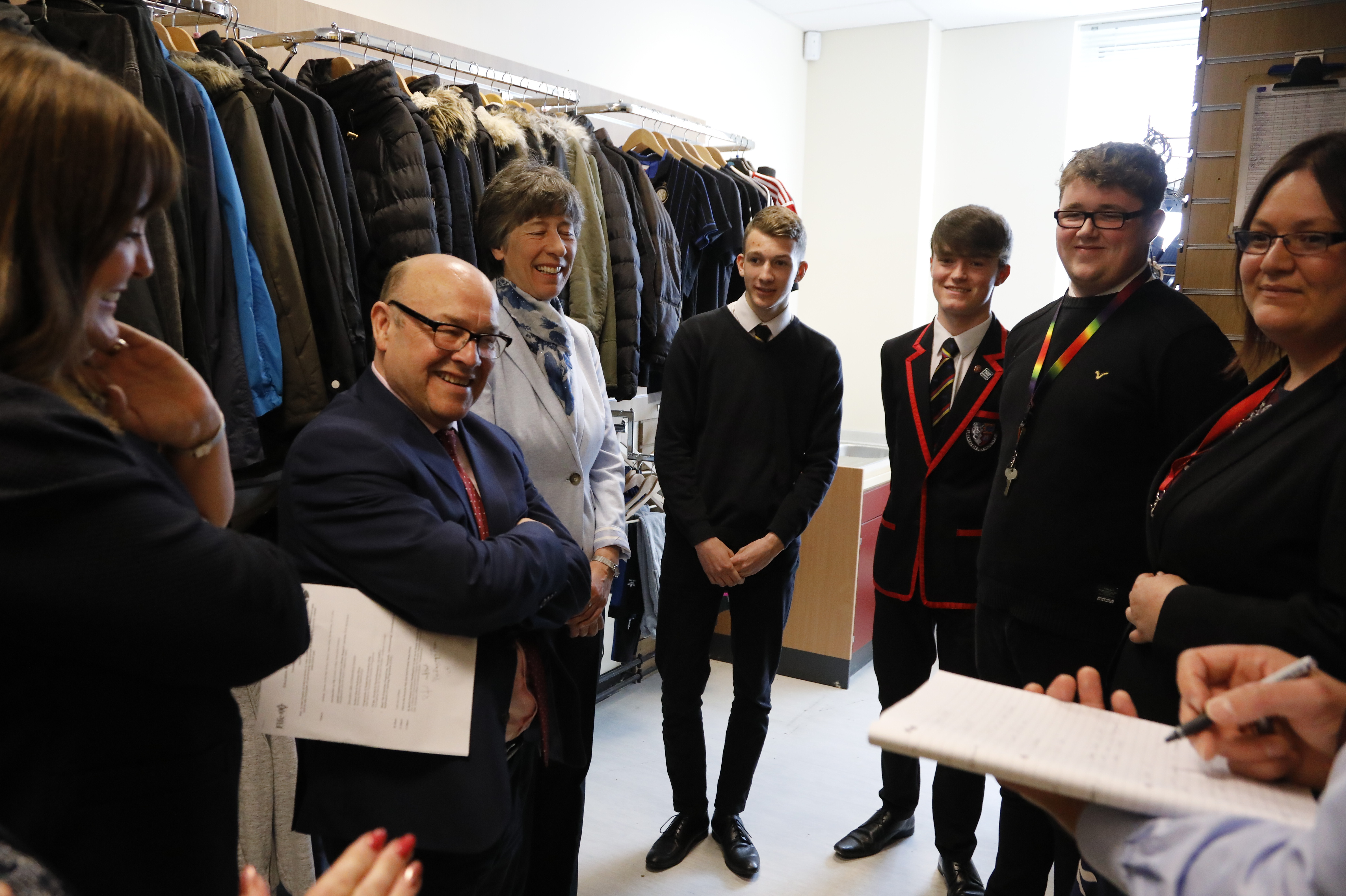
Several of our inquiries resulted in significant progress being made. Recommendations made in our report on subject choices led directly to the establishment of the OECD’s review of the Curriculum for Excellence in November 2019. The review's initial remit, which was to consider the operation of the Senior Phase, was expanded in February 2020 to cover the whole Curriculum for Excellence, and following the 2020 SQA exam results was further expanded to cover the assessment and qualifications approach in the Senior Phase. We had planned to scrutinise the OECD's report this session, but due to the expansion of the remit of the review, it is anticipated it will now publish in June 2021. The findings of the OECD report, as well as Audit Scotland's forthcoming report on educational outcomes, will also be helpful to our successors in continuing to scrutinise school education and and consider what steps to take in Session 6.
A common thread running through several inquiries has been scrutinising the Government's stated aim to narrow the poverty-related attainment gap. In terms of measuring the attainment gap, in 2018 the Scottish Government has identified 11 key measures to assess progress, and a further 15 sub-measures which are intended to reflect the key stages of the learner journey and the breadth of issues that can impact on attainment. These are reported annually in the national improvement framework and improvement plan for Scottish education. There are a number of ways to interpret attainment data, particularly data on school leavers and SQA results. The successor Committee may wish to undertake a review of the Scottish Government's measures of the attainment gap to ensure that they are adequately capturing progress toward closing the attainment gap.
Our report into personal and social education (PSE) led to a Scottish Government Review, followed by the creation of the PSE Delivery and Implementation Group. The Group's work, however, has not yet been completed, despite a commitment to do so by the end of the current Parliamentary session. This delay is likely due to Covid-19.
In addition to following up on the recommendations of the OECD report, our successor committee should consider scrutinising the Scottish Government's implementation of the PSE review recommendations.
We also draw our successor committee's attention to the fact that an Audit Scotland report on education outcomes is due to be published later in 2021. Our successor committee should scrutinise this report, possibly in conjunction with the Public Audit and Post-Legislative Scrutiny Committee.
Education workforce
Given the predominance of school education in our work this session, it will be of no surprise that we have taken a strong interest in the views and experiences of those working in Scotland's schools.
One particular interest has been the support provided to those entering the teaching profession and the development of those already in the profession. In 2016, the Scottish Government published its evaluation of the impact of the implementation of "Teaching Scotland's Future", also known as the Donaldson Report, which was published in 2011 and made a number of recommendations on how to improve teacher education.
In Session 5, we held an inquiry into teacher workforce planning for Scotland’s schools, which reported in September 2017. We made a number of recommendations relating to initial teacher education, recruitment and retention of staff, and monitoring the impact of vacancies on schools. Subsequently, we had planned an inquiry into initial teacher education. This inquiry would have revisited these recommendations as well as exploring the work of the MQuITE (Measuring Quality in ITE) project. However, this inquiry was paused as a result of Covid-19.
Through these strands of work, as well as other interactions with teachers and staff in schools and their representatives, we heard concerns about the availability and quality of continuous professional development (CPD) for all classroom staff and the difficulties sometime faced in being able to undertake CPD in work hours. We also explored challenges in recruitment and retention of classroom staff, particularly in rural and remote areas, difficulties faced by newly qualified staff and supply teachers in finding work, and initiatives to encourage women into STEM teaching.
We also explored policies relating to other staff within the school environment. In 2020, we took evidence on the Scottish Government's 2018 commitment to enable all secondary schools in Scotland to have access to at least one qualified counsellor by September 2020. We had planned to visit Wales to understand the delivery of a similar policy in Wales, but this fact-finding visit was paused due to Covid-19.
As highlighted earlier in this report, hearing directly from those working in education as part of our evidence-gathering process was pivotal to our understanding of the issues. In particular, hearing directly from STEM advocates in early years education in oral evidence, instrumental music tutors, and our focus groups with teachers as part of our subject choices inquiry added depth and colour to our inquiries.
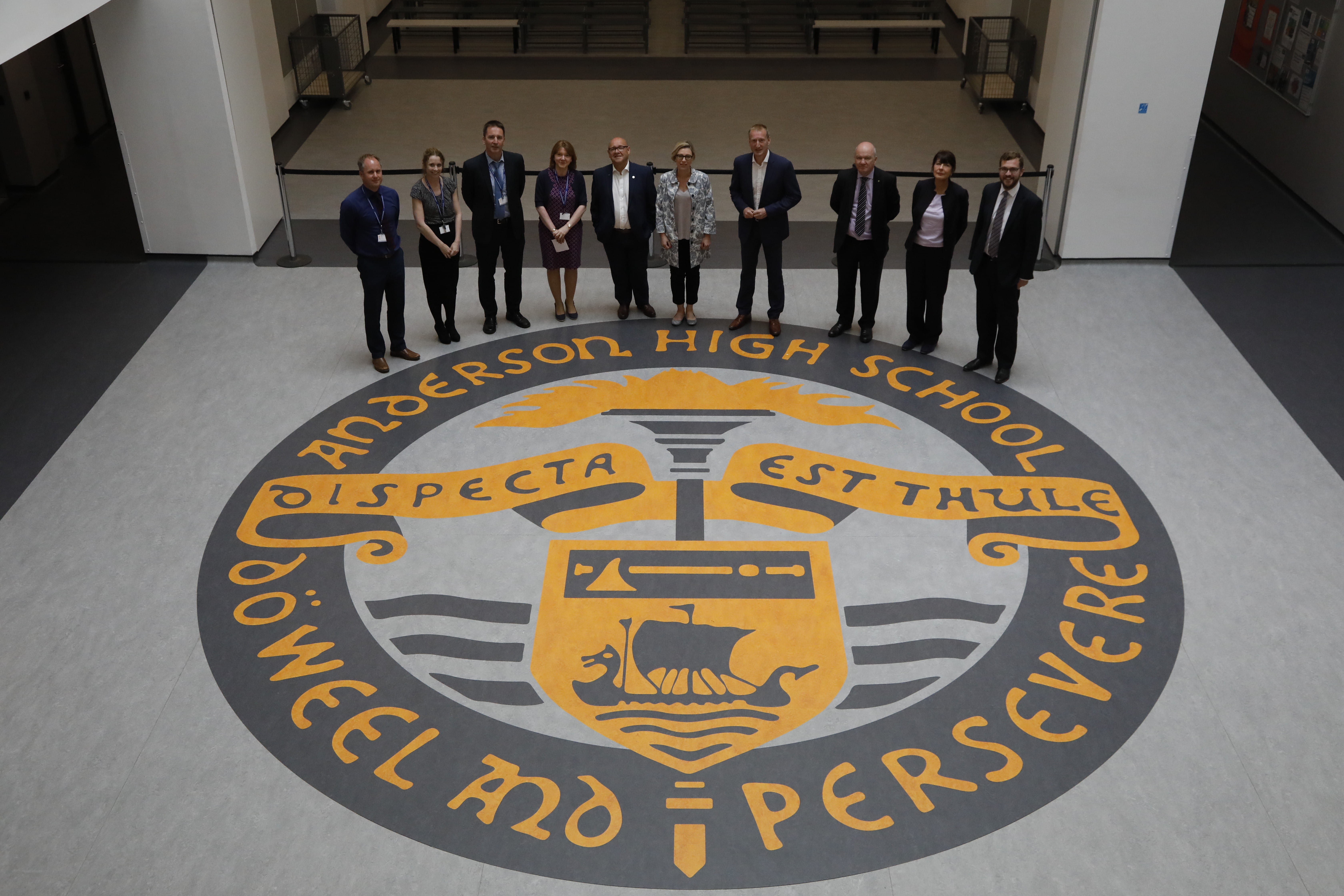
However, as we reported as part of our inquiry on the performance and role of key public bodies, some teachers reported feeling uneasy about engaging publicly with us. Although we have facilitated hearing from teachers anonymously, this remained a matter of concern.
In light of the pandemic, it will be important for the successor Committee to revisit the issues facing the education workforce highlighted in this section, including recruitment and retention and teacher education.
The successor Committee should consider ways in which the teaching profession can best contribute to the Committee’s work and understanding of key issues.
Performance and role of key public bodies
Early in Session 5, we held an inquiry into the performance and role of key public bodies, including the Scottish Qualifications Authority (SQA), Education Scotland, Skills Development Scotland and the Scottish Funding Council. The report made clear recommendations to these bodies , led to a Chamber debate on its findings in January 2017, and included a commitment for us to "monitor the performance of the SQA throughout this session of parliament" as part of our responsibility to hold these organisations to account.
Our engagement with, and scrutiny of, the SQA and Education Scotland continued through follow-up sessions with the SQA in 2019 and 2020, their contributions to our inquiry into subject choices, and through our scrutiny of the impact of Covid-19. In the aftermath of the 2020 exam results, we were frustrated at what we felt was a lack of transparency around decision-making, a reluctance to release data, and the apparent disconnect between the evidence we received from these bodies and what we were being told by parents, pupils and teachers.
We also continue to hold particular concerns about the communication from the SQA and Education Scotland, including both the quality of information shared with the Committee (for example in oral evidence sessions) as well as the way in which decisions and discussions were held with key stakeholders, including pupils and teaching staff.
It is important to stress that we appreciate that those leading SQA and Education Scotland have had to respond to an unprecedented situation, and that the staff within each organisation have worked incredibly hard in a challenging environment. We do not make these criticisms and observations lightly. However, we also recognise and share the frustration of parents, pupils and teachers at the handling of the 2020 exam results, not least the impact of the algorithm applied to results on candidates from different socio-economic backgrounds and the lack of a direct appeals process for individual candidates.
As promised in our report at the start of Session 5, we have monitored the performance of SQA and Education Scotland over the last five years. We remain unconvinced that these bodies in their current form are fit for purpose. Confidence among practitioners in these organisations also appears low and it is clear that structural reform is now required. With the OECD report due to be published this year, we urge our successor committee to undertake work early in the new Parliamentary session with a view to establishing what such structural reform could and should encompass.
Additional Support Needs
Additional Support Needs has been another area of sustained focus. We held an inquiry into additional support for learning in school education settings which reported in May 2017. We heard evidence from parents and teachers, holding focus groups to understand what additional support for learning meant in practice.
We heard that it was often challenging for parents to secure the help that their children required. Alongside this, we heard that there had been an exponential rise in the number of children recorded as having additional support needs between 2010 and 2017 (a 153% rise). This is a matter which our successor committee may wish to revisit in the next Parliamentary term. We have heard some concerns from stakeholders relating to the broad definition of Additional Support Needs, including the possibility that this is stretching resources too thin and preventing some children and young people from accessing support they require.
Our inquiry also looked at whether children with additional support needs were better supported in mainstream or special schools. We knew this was a sensitive and potentially divisive issue so sought a range of evidence. Whilst we heard some evidence to suggest that some children with ASN felt more excluded in a mainstream setting, on balance we concluded that more children with additional support needs were better served by mainstream than special education.
However, we also noted with concern the reduction of specialist staff in classrooms, the reduction in specialist support services and the reduction of special school places. We know that this support can make a huge difference to individual children and young people.
At the conclusion of our inquiry, we recommended that the Scottish Government should undertake a quality assurance review of:
the implementation of the presumption to mainstream; and
the availability of additional support for learning in mainstream schools.
We also recommended that the Scottish Government, should report to the Parliament on an annual basis to provide qualitative and quantitative evidence on additional support for learning in mainstream education.
Another clear message from our inquiry was that Co-ordinated Support Plans (CSPs) were being underused. This was of concern as it is a Co-ordinated Support Plan which provides parents (or in some cases pupils themselves) a statutory basis on which to challenge a local education authority's failure to provide assessed additional support, including via the Additional Support Needs Tribunal. The Deputy First Minister/Cabinet Secretary for Education and Skills confirmed in December 2019 that once the quality assurance review had been concluded, then a further review into CSPs would be carried out.
The quality assurance review was undertaken by Angela Morgan and its findings published in June 2020. We held an evidence session with the report author in November 2020 and wrote to the Auditor General for Scotland to support the findings of the report being taken into account in Audit Scotland's work on additional support needs.
Our successor committee may wish to carry out further scrutiny once the review of Co-ordinated Support Plans has been completed.
We would also suggest that there is scope to scrutinise the operation of and access to ASN tribunals. We had provisionally planned to undertake work on this issue in 2020, however, we were unable to do so due to Covid-19.
Our successor committee may also wish to consider whether there is scope to follow up on the work we undertook on the impact of Covid-19 on vulnerable children. This work was carried out early in the pandemic.
Early years and childcare
A number of reforms to the delivery of early learning and childcare have been implemented in Session 5. As these reforms have been delivered in different ways by different local authorities to reflect local circumstances, this has resulted in a mixed picture across the country in terms of the rollout of 1140 hours. Our successor Committee may wish to revisit this rollout to explore if it has worked well across all of Scotland.
We visited Rutherglen in 2018 to hear first hand from childcare providers and parents their views of the expansion and roll-out of funded childcare.
Ongoing challenges include the flexibility within the current system for parents to take advantage of the 1140 hours provision and the implementation of the principle of funding following the child, as well as the impact of Covid-19 on the sector, cooperation between public sector provision and PVI sector provision, and its impact on childminders.
Following an evidence session with the Minister on 9 December, we wrote to ask about delays to capital building projects to support the delivery of a full 1140 hour service. The Minister replied to confirm that 81% of these projects are forecast to be complete by April 2021, increasing to 96% by August 2021.
Whilst we appreciate there will be some variation in how the 1140 hours is implemented across different local authorities, our successor committee should ensure that this variation does not lead to some parents being able to access their full entitlement and others being unable to do so (e.g. because provision does not fit flexibly around working hours).
Our successor Committee may wish to revisit these reforms later in Session 6 to explore if the desired outcomes have been achieved. In the short term, our successor Committee could follow up the progress of building projects with the Scottish Government.
Further and Higher Education
Further and higher education is included within the Committee's remit. This session, one of the key issues we have considered is the financial position of institutions within the FE and HE sector, where we have regularly been informed (particularly during budget scrutiny discussions) of funding shortfalls and the challenges institutions face in managing their debt. While these issues have been exacerbated and further highlighted by the impact of Brexit and Covid-19, these issues pre-date these events.
In 2020/1 we carried out a short inquiry examining the impact of Covid-19 on the Further and Higher Education Sector, including an immediate examination of the return of students following the Christmas break.
As part of this work, we held two online focus groups with Principals from Universities and Colleges. Key concerns raised included the potential for a significant funding shortfall, mainly due to staff being furloughed, a loss of income from commercial activities and the potential loss of income from overseas students.
Increased costs as a result of delivering online learning were also cited as problematic, with colleges highlighting they support some of the most vulnerable and disadvantaged students in Scotland. Colleges in particular were keen to counter digital exclusion facing some of their students, sourcing and supplying laptops to those most in need.
Colleges also raised wider systemic issues and the knock-on effect of high Covid-19 related unemployment. This included the possibility that modern apprentices would struggle to find employment at the end of their course. Again this, alongside the impact of Covid-19 on vulnerable students, is something our successor committee may wish to look at in more detail, particularly as part of any work on the Cumberford-Little report.
Given the aforementioned financial challenges faced by the sector, it is welcome that the Scottish Funding Council is currently conducting a review of financial sustainability in Further and Higher education. We heard from the Scottish Funding Council at the conclusion of Phase 1 of the review. Our successor committee should undertake further work on this once the review has been completed.
As previously mentioned, we also planned to take evidence on the impact of Brexit on FE and HE shortly before the start of the pandemic. This work was delayed as a result of Covid-19. However, our successor committee may wish to revisit this in Session 6.
Our successor Committee may wish to keep a watching brief on Further and Higher education finances, particularly in light of the anticipated impact of Covid-19 and Brexit on international student numbers and public finances.
With the ten year anniversary of college regionalisation taking place in 2022/23, our successor Committee may also wish to examine whether anticipated college reforms have become a reality.
Our Hopes for the Future
Looking Ahead
At the end of a Parliamentary session it is worth taking stock not just of the work undertaken by the Committee, but also the lessons learned over the last five years.
What we have valued most is hearing directly from children, young people and other stakeholders about their experiences. We know that this works best when we think about their needs and what they require to actively participate in our work. We have also learned not to make assumptions and to speak directly to stakeholders about their wishes.
It is easy to assume, for example, that someone won't want to share difficult and traumatic experiences in public. However, in considering the Redress for Survivors (Historical Child Abuse in Care) (Scotland) Bill, some victims-survivors of childhood abuse told us very clearly that they wanted to speak on the record. They wanted people to know the difference that a redress scheme would make to them personally and how they thought it should work in practice. For others, they wanted to share their views more privately. We made space for both options to take place. We also learned a great deal from consulting with the Scottish Child Abuse Inquiry team, prior to commencing our work on the Bill.
As a Committee, we have always been committed to hearing the voices of children and young people. This year more than ever it has been vital to hear the impact of Covid-19 restrictions and unprecedented changes to school education. We have appreciated and valued hearing children and young people's views at short notice. Whilst we recognise that this agility is partly due to us working digitally, it is also due to the work we have undertaken throughout Session 5 to build meaningful relationships with key stakeholders. We would hope our successor committee could continue this work from the beginning of Session 6, forging links with a broad range of grass-roots stakeholders, including, for example, BAME children and young people, those with additional support needs, those living in urban/rural settings, care-experienced young people and younger children.
Our successor committee may also have a role in setting expectations for public bodies, ensuring that children and young people are meaningfully involved in decision-making and their wider work. The incorporation of the UN Convention on the Rights of the Child into Scots Law will bring about a sea-change in the way that public bodies under our remit will have to operate. Our successor committee will also need to consider the potential impact of this legislative change on its scrutiny, including, for example, ensuring closer examination of impact assessments and regular interaction with bodies such as the Children and Young People's Commissioner Scotland and the Scottish Human Rights Commission.
We have also valued hearing from the education workforce over the last 5 years. We know that it is not always easy for teachers and support staff to speak openly about their views. We would hope our successor committee could explore at an early stage how such barriers to participation could be overcome, for example, via the use of digital consultation techniques.
There have also been challenges for us unrelated to Covid-19. As one of the largest Committees in the Scottish Parliament, with eleven Members, we have sometimes struggled to scrutinise issues in the depth we would have liked. Our hope is that numbers can be reduced in the next session. Ideally, we believe our successor committee should comprise a maximum of nine Members.
Our remit is broad and complex. As a result we have necessarily had to focus our efforts on key areas, sometimes at a cost to others. We hope our successor committee has a clear remit which has education and young people at its core. We believe there are certain elements of our current remit (e.g. skills) which should either sit with other committees next session or be more fully incorporated into the Committee's work programme through joint working or sub-committees.
We are proud of our achievements of the last five years. We have pushed for progress, highlighted where systems weren't working and helped ensure the views of those directly affected by education law, policy and practice have been heard.
We know there is still much work to be done, however, and we wish our successor committee colleagues all the very best for Session 6.